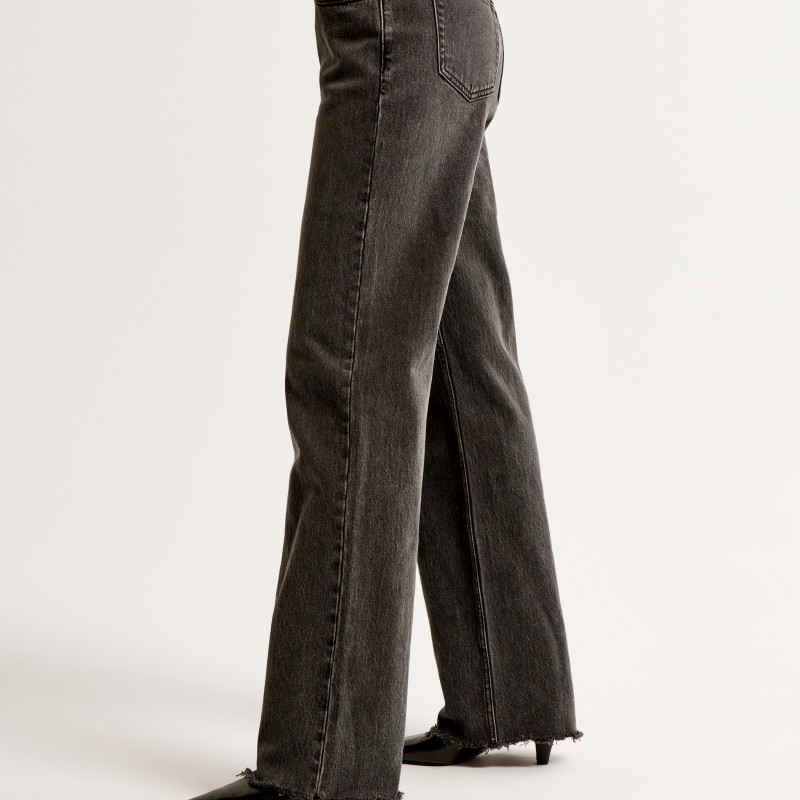When it comes to taking care of your clothing, particularly beloved denim, understanding how often should I wash my jeans can be an important aspect of your wardrobe maintenance routine. Jeans have a characteristic rugged appeal, easily making them a staple in virtually anyone’s wardrobe. However, the care and maintenance of jeans often raise questions, especially regarding the best washing practices. With the advent of trends like sustainability and longevity in fashion, there’s increasing awareness about how over-washing can damage fabric quality and lead to unnecessary waste. Additionally, many individuals find themselves torn between wanting clean jeans and keeping that perfect fit and wash. In this article, we will explore not only the optimal frequency for washing your jeans but also delve into related factors such as fabric type, wearing habits, and environmental concerns. You’ll be equipped to make informed decisions that benefit both your jeans and the planet.

Contents
The Importance of Proper Care for Jeans
Before we dive into the specifics of how often to wash your jeans, let’s discuss the importance of proper care and maintenance for this versatile garment.
Understanding Denim Fabric
Denim is a durable fabric made from cotton twill, characterized by its resilience and ability to withstand wear and tear. This attribute makes denim ideal for everyday clothing, particularly jeans. However, this durability does not mean that denim is indestructible. Washing too frequently can lead to wear, fading, and stiffness, while inadequate washing can allow odors and bacteria to build up.
The Lifecycle of Jeans
Knowing how jeans are made and designed can help inform your washing routine. A well-constructed pair of jeans can last for years if properly cared for. Quality stitching, fabric, and washing processes contribute to a pair of jeans’ longevity. Understanding this lifecycle can guide wearers in making better choices to maintain their denim’s life and appearance.
Environmental Impact of Washing
The environmental impact of washing jeans can be significant. Every time you wash jeans, you consume water, energy, and detergent. According to some estimates, an average pair of jeans requires about 2,000 gallons of water to produce, making it imperative to wash them less frequently for sustainability. We need to consider these factors when discussing how often to wash jeans.
How Often Should You Wash Your Jeans?
Determining the ideal frequency for washing your jeans can depend on multiple factors, including wear frequency, personal habits, and environmental considerations.
General Recommendations
Washing jeans every 4 to 6 wears is often recommended by fashion experts and laundry enthusiasts. However, this is just a guideline, and actual frequency may vary based on wear conditions. For those who wear their jeans casually with minimal exertion, extending wear time between washes may be feasible. In contrast, if your jeans encounter sweat, spills, or other elements, more frequent washing may be warranted.

Lifestyle Considerations
Your lifestyle plays a critical role in determining how often you should wash your jeans. If you’re engaging in exercise, outdoor activities, or work that involves heavy labor, you might find it necessary to wash your jeans more frequently. Conversely, if you mostly wear your jeans indoors or for activities with low sweat levels, you can circumvent frequent washing.
Fabric Types and Washing Needs
Different denim fabrics behave uniquely when it comes to washing. For example:
- Raw Denim: Generally does not require washing until several wears (up to 6 months for some enthusiasts). The idea behind this is to allow the jeans to mold to the wearer’s body.
- Distressed Denim: May require more frequent cleaning if dirt and grime accumulate in the distressed areas.
- Stretch Denim: Fabrics containing elastane may retain odors more than traditional cotton denim and might need more regular washing compared to stiff varieties.
Signs It’s Time to Wash Your Jeans
Understanding specific indicators that your jeans are due for a wash can help you maintain both cleanliness and quality. Here are some signs to look for:
Visible Stains or Dirt
If you notice visible stains—whether from food, drink, or other materials—it’s time to wash your jeans, regardless of how many wears you’ve had in them. Stains can set in over time and become more challenging to remove.
Unpleasant Odors
If your jeans smell bad—whether from perspiration, outdoor activities, or environmental factors—it’s a strong sign that they need to be washed. Denim tends to retain odors, so addressing this issue promptly is essential for maintaining cleanliness.
Changes in Fit or Comfort
If you find that your jeans are becoming uncomfortable or feel like they’re losing shape, they may need a wash. Accumulated body oils, sweat, and other factors can affect the fabric’s feel. Cleaning them can help restore comfort.
Marked Wear Patterns
Over time, you may notice wear patterns developing in the high-pressure areas like cuffs, pockets, or the seat. If these areas start to look different, it can suggest that washing may help refresh the fabric and restore its appearance.
How to Wash Your Jeans Properly
Now that we’ve established how often to wash your jeans, it is equally essential to know how to do it properly. The following steps can help maintain your jeans while ensuring they are cleaned effectively.
Preparation Before Washing
- Check the Care Label: Always refer to the garment’s care instructions for specific recommendations regarding washing and drying.
- Turn Them Inside Out: This helps to protect the outer finish and color of the denim, reducing fading.
- Sort Colors: If your jeans are new and brand-new, it’s advisable to wash them separately or with similarly colored clothing to avoid dye transfer.
Choosing the Right Detergent
Opt for a mild detergent designed for colors or delicate fabrics. This ensures your jeans maintain their color and texture, prolonging their life. Avoid using bleach, as it can damage the fabric and alter the color.
Washing Techniques
When washing jeans, choose a gentle cycle on your washing machine with cold water. Hot water can shrink the fabric and cause it to lose its shape. A smaller load is preferable to prevent agitation that could result in more friction.
Drying Your Jeans
After washing, it’s best to air dry your jeans whenever possible. Hanging them on a clothesline or laying them flat will help maintain their shape and avoid unnecessary shrinkage. If you must use a dryer, set it to low heat to minimize potential damage.
Tips for Maintaining Your Jeans
To ensure that your jeans remain in great condition for a long time, follow these maintenance tips:
Avoid Overwashing
The most effective way to prolong the lifespan of your jeans is to avoid washing them too frequently. Embrace wearing your jeans multiple times between washes, as long as they remain clean and odor-free.
Spot Clean When Necessary
For minor stains, consider spot cleaning rather than washing the entire garment. Use a damp cloth and mild soap to gently dab the affected area. Allow the jeans to air dry before wearing them again.
Keep Them Away from Heat
Excessive heat can cause denim fibers to break down and lead to shrinking. Avoid leaving your jeans in direct sunlight for long periods and be cautious of hot washing or drying settings.
Rotate Your Denim
If you own multiple pairs of jeans, consider rotating them to prevent excessive wear on any one pair. This strategy allows each pair to rest, helping to maintain their structure and appearance.
Invest in Quality Pieces
Quality matters when it comes to denim. Investing in high-quality jeans may come at a slightly higher price, but their durability and fit can make them worth the expense. Look for craftsmanship, stitching, and fabric when choosing your jeans.
Alternative Approaches to Denim Care
For individuals looking to reduce their environmental footprint, adopting alternative care approaches may be beneficial.
Freezing Your Jeans
One unconventional method is to freeze your jeans instead of washing them. Place your jeans in a plastic bag and put them in the freezer overnight. The cold temperature can kill bacteria that cause odors, rejuvenating the fabric without washing.
Using Vinegar
Vinegar is an excellent natural odor neutralizer. Adding a cup of white vinegar to the washing machine can help keep jeans smelling fresh while also helping to set colors.
Washing Less in General
Consider having a more thoughtful approach to washing your entire wardrobe. Being mindful of fabric types and wear can help reduce laundry loads.
Embracing Light Distressing
There are ways to give your jeans character without wearing them regularly. Lightly distressing them or creating small rips can allow for added flair without unnecessary wear.
Sustainable Jean Brands
Lastly, consider purchasing jeans from brands that advocate for sustainable practices. Many companies are taking initiatives to create jeans using eco-friendly methods and materials. This is beneficial for both the environment and your wardrobe.

Conclusion
In conclusion, determining how often should I wash my jeans requires a careful assessment of lifestyle, personal habits, and fabric considerations. Understanding the factors influencing your jeans’ cleanliness and longevity helps align your washing habits with practical maintenance strategies.
By following expert guidelines, including proper washing techniques and care routines, you can enjoy your jeans for many years while keeping them looking fresh. Remember that jeans are not just a wardrobe staple; they are an item worth investing in. With mindful practices, your favorite pair of jeans can age gracefully and continue to be a reliable part of your style repertoire.
Embrace the versatility that denim offers and enjoy the unique character each pair of jeans develops over time. Fashion is about expressing yourself while being comfortable, and with this guide, you can ensure that your denim remains a reflection of your style for years to come.